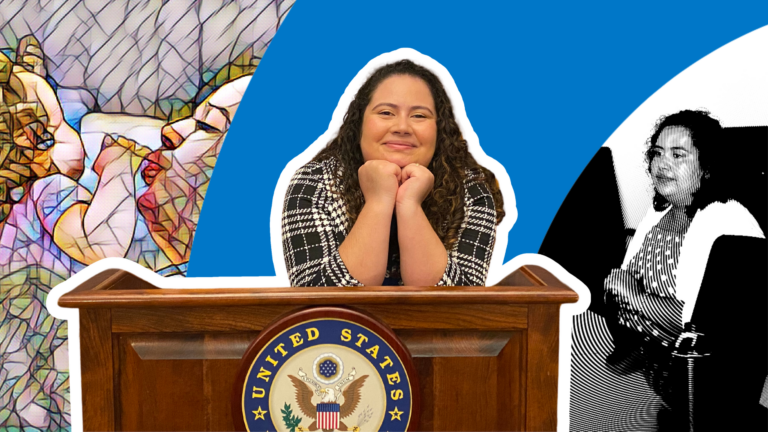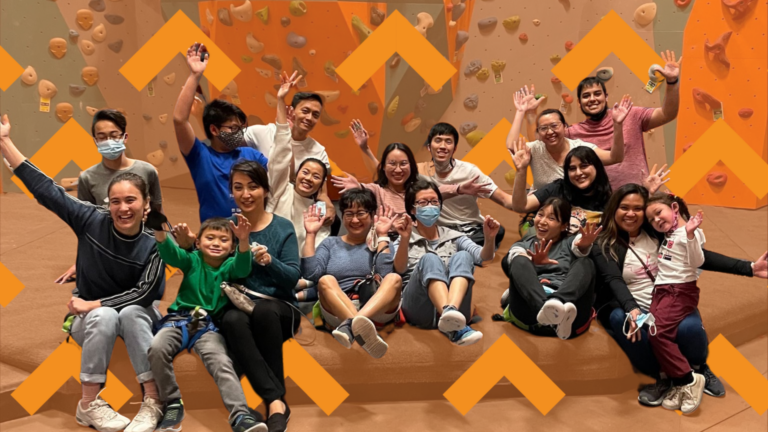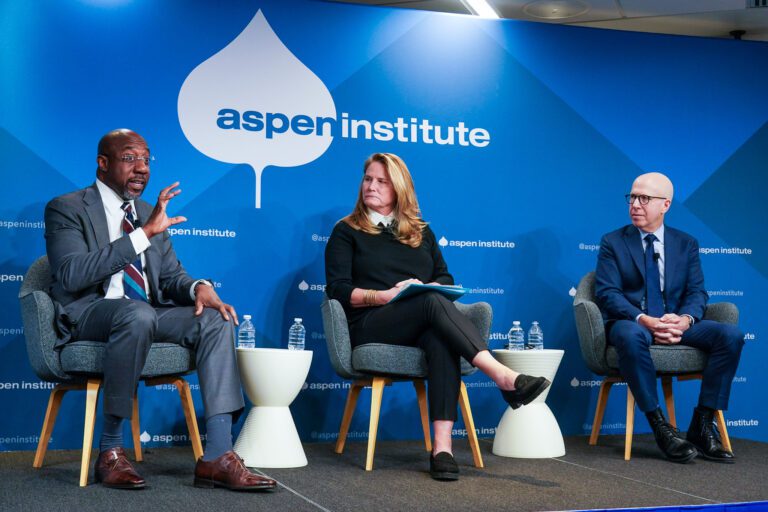Unpacking the Father Factor, a Critical Link in Building Strong Communities
Visionary leaders understand that many of our public systems and services were not designed for 21st century families. So, program and public leaders across the country are redefining how they work with families. On Thursday, November 29, Ascend at the Aspen Institute and GOOD+ Foundation convened fathers, researchers, thought leaders, policymakers, and social service program leaders to explore the father factor – a critical link in building strong families and communities. Speakers shared research and ideas, highlighted promising practice, and explored policy opportunities to increase engagement of both fathers with their children and social service organizations with fathers.
GOOD+ president and founder Jessica Seinfeld began by affirming that a focus on fathers is ultimately a focus on families, because “our failure to help broken men become strong fathers today sets in motion a series of negative outcomes that will likely last decades.” Seinfeld continued, “In better engaging fathers, we dream of giving moms – whose responsibilities and stress are endless – an engaged co-parent, and giving dads the opportunity and ability to feel anchored to their children.”
“We’re entering a new era right now for families and about fathers, and there’s a political will growing across our country saying, ‘our structures and our stereotypes are behind where family and culture is,” said Aspen Institute vice president and Ascend at the Aspen Institute executive director Anne Mosle. “If you spend time talking with families, you’re going to hear… one unifying, unwavering commitment. Everybody wants it to be better for their children – mothers, fathers, grandparents, and community.”
And the day began by highlighting exactly that – fathers and the programs that serve them. The City University of New York (CUNY) Fatherhood Academy graduate and CUNY Graduate Center mentor coordinator Jesus Benitez shared a story of transformation that began with parenting skills and resources to pursue postsecondary education and today look like a healthy co-parenting relationship with his son’s mother and pursuit of a bachelor’s degree and doctorate candidacy in philosophy.
California father of two Michael Nestor underscored the power of programs engaging fathers effectively to lift whole families adding, “Everybody wants to be a father. It’s just that we don’t know how to.”
Programs like the CUNY Fatherhood Academy and Project Fatherhood that Nestor participated in do amazing work in communities across the country, but they often find themselves equipping well-intentioned fathers with tools to be better parents to their children while still having to navigate systems ill-equipped to support them.
Ascend Fellows Reggie Bicha, executive director of the Colorado Department of Human Services, Raquel Hatter, deputy director of human services at the Kresge Foundation, Joe Jones, founder, president, and CEO of the Center for Urban Families, and Kim Dent, executive director of the Ohio Commission on Fatherhood unpacked what modern family structures mean for public policy and systems.
“So many of the programs that we operate at the state and local levels are based on federally designed programs built on a perception of families that literally goes back to the early 1900s,” said Bicha. “We never designed any of these systems to think about ‘what do children need from their families in order to grow healthy and to be in a position to thrive as they move into adulthood.” Asked Bicha of the room, “How do we design and operate our systems around that notion?”
And to Bicha’s point, Jones added, “When you get somebody to go from being a liability – where they’ve been drawing on taxpayer dollars – to being an asset to community and becoming taxpayers, that’s the beauty of what can happen in our country.”
Check out some of the highlights and learn more:
- Agenda
- Recording of the morning session and powerful closing keynote from Revered Dr. Raphael Warnock, senior pastor, Ebenezer Baptist Church
- 2018 Solutions Series briefs, Providing Care and Custody With Dignity and Respect Within Colorado Division of Youth Services and Transition Strategies: Sustaining 2Gen Success, by Colorado Children and Families Fellow Tony Gherardini and Ascend Fellow Reggie Bicha
- Stay tuned for a brief highlighting key takeaways in 2019
This conversation highlighting the importance of fathers in helping children and families thrive was the fourth convening of Ascend’s 2018 Solutions Series, a collection of briefs, webinars, and convenings that elevate the top opportunities and actionable solutions to move children and their parents toward educational success and economic security as recommended by Ascend and other experts in the field.
Related Posts



